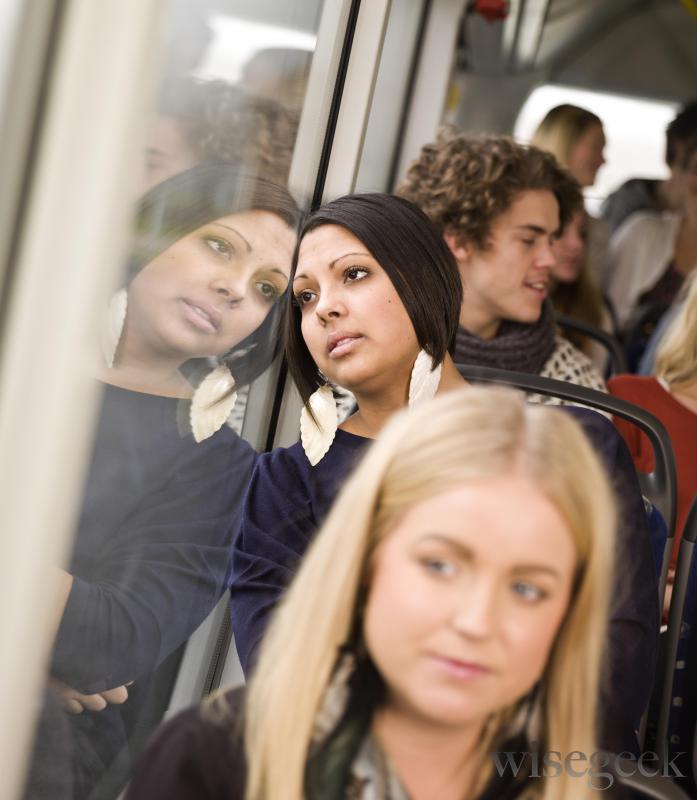At TheHealthBoard, we're committed to delivering accurate, trustworthy information. Our expert-authored content is rigorously fact-checked and sourced from credible authorities. Discover how we uphold the highest standards in providing you with reliable knowledge.
What is Demophobia?
Demophobia is an anxiety disorder that manifests itself as a fear of crowds. This fear is often exaggerated or unfounded, though the sufferer can become paralyzed by just the thought of being in a crowd. Also known as ochlophobia or enochlophobia, demophobia is often experienced by shy or introverted people, though it may occur in anyone for a variety of reasons. People who suffer from demophobia may avoid crowds altogether, and if they happen to find themselves in a crowd, they may flee the situation, become incapacitated, cry, sweat, shake, or exhibit other symptoms of severe anxiety.
The causes of demophobia will vary from person to person, and discovering the cause is key to helping the sufferer overcome the fear of crowds. A sufferer may have gone through a bad experience in a crowd at some point in his or her life — very often such experiences occur in childhood — such as becoming lost in a crowd, being part of a crowd that turns violent, being trampled by a crowd, or being injured in a crowd. Many people who have an irrational fear of crowds may attempt to rationalize the fear by making note of the potential for incident in a crowd, such as being attacked, contracting a disease, or becoming lost. Regardless of the cause, demophobia can prevent the sufferer from functioning normally in even the smallest of crowds, such as those found in the lobbies of movie theaters.

To overcome demophobia, a sufferer must first identify the cause of the fear, and then begin to understand more about crowds and how to function when a part of them. The process of overcoming the fear will be slow and sometimes stressful, but the more exposure to crowds a sufferer gets, the quicker the process will become. A sufferer might start by viewing a crowd from afar and observing how people in the crowd react to one another. Understanding that a crowd is comprised of individuals may help to alleviate irrational fears; a sufferer may realize that should something bad happen in a crowd, most people are willing to help.

A sufferer may then choose to expose him or herself to smaller crowds, perhaps at a small gathering of friends. Progressively building toward larger and larger crowds can help the sufferer adjust to crowds. In some instances, however, this method may be too difficult; sufferers should then turn to a mental health professional who can help design a strategy for coping with demophobia and eventually overcoming it.
AS FEATURED ON:
AS FEATURED ON:














Discussion Comments
Fear of crowds isn't an irrational fear. People are irrational. Large groups of people significantly amplify the likelihood of encountering people acting irrationally.
Group dynamics in crowds tend to amplify and spread, rather than mitigate, the irrational behavior of an individual. Stampedes and/or angry mobs are a very real and common phenomenon. In fact, personnel organizing large events have to work extremely hard to control the crowds and limit the amount of violence and crime associated with them.
The risk of an individual being injured, killed, or the victim of a crime increases significantly as the number of people in a crowd increases. Crowds attract criminal elements who prey upon them. Crowds are biological hazards.
Unless there is some real tangible benefit to being in a crowd, that outweighs the risks associated with them, they should be avoided.
I believe that I have this phobia, but it does not source from any childhood experience. As far as I can remember, I've had no start to my fear of being in a crowd. I just freak out in them because I feel trapped and hemmed in. If there is a family member or friend nearby, I cling- quite literally- to their clothing. When I am finally out of the crowd, I tell those with me, repeatedly, "Don't touch me." Because I feel like I'll scream if I do get touched at that point in time.
It usually takes me a good ten minutes at minimum to get over the anxiety caused by the crowd, and I feel shaky for some time after.
Post your comments